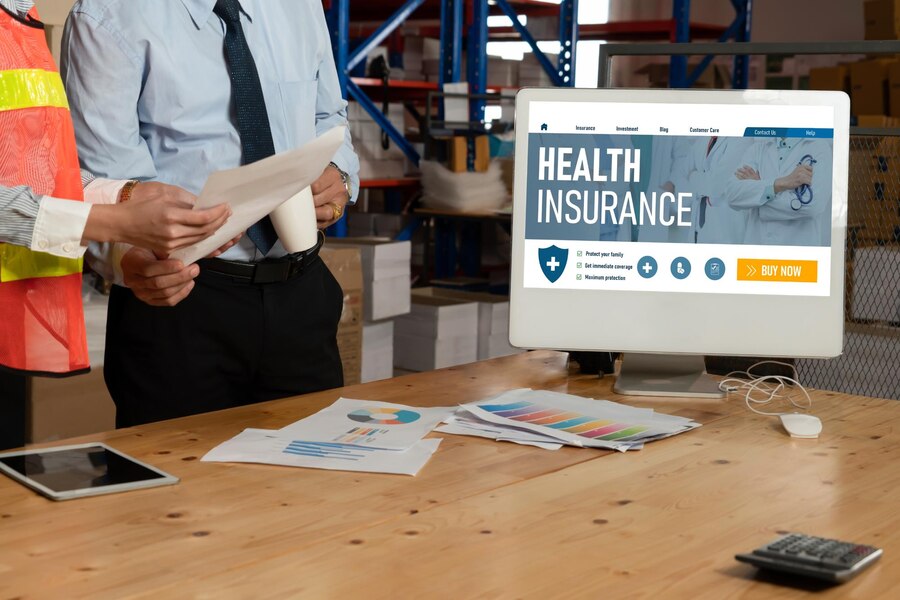
Protecting sensitive healthcare data is crucial in the current digital era. To guarantee the privacy and security of patient information, compliance with the Health Insurance Portability and Accountability Act (HIPAA) is essential. To achieve HIPAA compliance, healthcare organizations need robust software solutions that address data security concerns effectively. In this article, we will explore 15 must-have HIPAA compliance software solutions that can enhance data security and safeguard patient privacy.
Encryption Software
Encryption plays a vital role in protecting sensitive data from unauthorized access. HIPAA-compliant encryption software ensures that data is encrypted both at rest and in transit. It provides a secure environment for data storage and transmission, minimizing the risk of data breaches.
Access Control Software
Controlling access to patient data is a fundamental aspect of HIPAA compliance. Access control software enables healthcare organizations to manage user permissions, restrict unauthorized access, and implement multifactor authentication. This software ensures that only authorized personnel can access patient information, reducing the risk of data breaches.
Audit Trail Software
HIPAA requires organizations to maintain detailed audit logs of all activities involving patient data. Audit trail software captures and records user actions, such as accessing, modifying, or deleting patient records. It enables organizations to monitor and track data access, providing an essential tool for detecting and investigating any unauthorized or suspicious activities.
Risk Assessment Software
Conducting regular risk assessments is a crucial component of HIPAA compliance. Risk assessment software helps organizations identify and analyze potential vulnerabilities in their systems and processes. It assists in evaluating risks, implementing appropriate controls, and developing mitigation strategies to ensure data security and compliance.
Data Loss Prevention (DLP) Software
Data Loss Prevention software helps healthcare organizations identify, monitor, and protect sensitive data from unauthorized disclosure or leakage. It applies various techniques, such as content filtering, data classification, and policy enforcement, to prevent accidental or intentional data breaches.
Secure Messaging And Collaboration Software
HIPAA-compliant secure messaging and collaboration software enable healthcare professionals to communicate and collaborate while ensuring the privacy and security of patient information. It provides end-to-end encryption, secure file sharing, and secure video conferencing capabilities, ensuring that sensitive data remains protected during communication and collaboration.
Compliant email archiving is another pivotal component of HIPAA compliance for healthcare providers. It ensures that patient correspondence, vital for continuity of care and legal purposes, is securely stored and accessible for a mandated period.
Vulnerability Scanning And Penetration Testing Software
Regular vulnerability scanning and penetration testing are essential to identify and address potential weaknesses in an organization’s IT infrastructure. These software solutions scan networks, systems, and applications for vulnerabilities and simulate real-world attacks to assess the security posture and identify areas for improvement.
Disaster Recovery And Business Continuity Software
HIPAA requires healthcare organizations to have robust disaster recovery and business continuity plans in place to ensure the availability and integrity of patient data. Disaster recovery and business continuity software assist in creating and managing backup strategies, data replication, and failover mechanisms to minimize downtime and prevent data loss in the event of a disaster or system failure.
Employee Training And Awareness Software
Human error is a significant contributor to data breaches. HIPAA compliance software solutions can include training and awareness modules that educate employees about their responsibilities regarding data security and patient privacy. These software solutions provide interactive training sessions, quizzes, and resources to ensure that employees are well-informed and compliant with HIPAA regulations.
Incident Response And Management Software
In the unfortunate event of a data breach or security incident, a well-defined and effective incident response plan is crucial. Incident response and management software streamlines the process of reporting, investigating, and mitigating security incidents. It helps organizations respond promptly, contain the damage, and recover quickly, minimizing the impact on patient data and organizational reputation.
Data Backup And Recovery Software
Data backup and recovery software is essential for maintaining the integrity and availability of patient data. It enables healthcare organizations to create regular backups of critical information and provides efficient mechanisms for data restoration in the event of data loss, system failure, or cyberattacks. This software ensures that patient data can be recovered quickly and accurately, minimizing disruptions to healthcare services.
Mobile Device Management (MDM) Software
With the proliferation of mobile devices in healthcare settings, it is crucial to have HIPAA-compliant mobile device management software. MDM software helps organizations enforce security policies, remotely manage devices, and ensure data protection on mobile devices. It allows healthcare professionals to securely access and transmit patient information while maintaining control over device settings and configurations.
Secure File Sharing And Collaboration Software
Secure file sharing and collaboration software provide a secure platform for exchanging sensitive patient information internally and externally. It includes features like access controls, encryption, and versioning to ensure that data is protected during file-sharing and collaboration activities. This software enhances productivity while maintaining HIPAA compliance and data security.
Network Monitoring And Intrusion Detection Software
To detect and prevent unauthorized access to patient data, network monitoring, and intrusion detection software are essential. These software solutions continuously monitor network traffic, identify suspicious activities, and alert system administrators in real time. By detecting and responding to potential threats promptly, organizations can mitigate the risk of data breaches and maintain HIPAA compliance.
Secure Remote Access Software
Secure remote access software allows healthcare professionals to access patient information securely from remote locations. It provides encrypted connections and authentication mechanisms to ensure that sensitive data remains protected during remote access. This software enables healthcare organizations to offer telemedicine services while maintaining HIPAA compliance and data security.
Conclusion
In the digital era, healthcare organizations must prioritize data security and HIPAA compliance to protect patient information. By implementing these 15 must-have HIPAA compliance software solutions, including encryption software, access control software, audit trail software, and others, healthcare organizations can enhance data security, reduce the risk of data breaches, and ensure the privacy and confidentiality of patient data. These software solutions provide robust safeguards and tools to navigate the complex landscape of healthcare data security while meeting regulatory requirements.
Additional:






